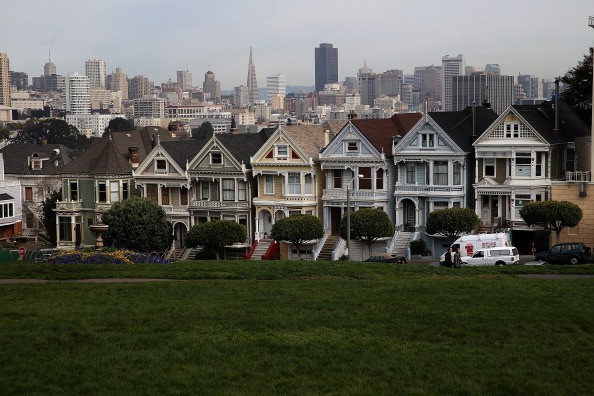
It’s been years since I’ve watched a commercial. Honestly, we just use our DVR for all the shows we like to watch – or watch them on Netflix – and we don’t even bother with television when it’s live. To be quite honest, we actually avoid live shows and will find something else to do to keep us busy until a recording is far enough in that we don’t have to bother ourselves with watching anything life. This morning as I was making breakfast for my darling littles on this fourth week of summer vacation (only six more weeks to go) that their recorded episode of Bubble Guppies ended and live television came on. On the TV was a commercial for reverse mortgages.
Being slightly busy cutting grapes and arranging raspberries on plates, I had to wait a moment to start a new show for the littles. I got to hear the entire commercial about why a reverse mortgage is a good idea, but I really didn’t think that it sounded like one. I could see the older couples on screen looking marvelously thrilled with the idea of a reverse mortgage, but all I could do was shake my head and assume that this sounded like a terrible idea. I mean, how does it even work?
Being the person that I am, I looked it up. When I don’t know something, that’s what I do. I like to be informed and educated, so I checked out what a few of my favorite banks and websites had to say about it – and then I checked with my handsome banker husband. Turns out, my gut instinct was correct and spot on; reverse mortgages are apparently not the wonderful idea that so many people want them to be. Why? Well, I can help you with that one.
You Do Have to Repay Before Death
The deal with a reverse mortgage is that you never have to have a mortgage payment again when you retire. The problem with that is the fine print. You know the house has to be paid for when you pass, but what happens if you are sent to a long-term care facility or hospitalized for more than a year? Well, you have to give up calling your home your primary residence, and you have to start making your mortgage payments all over again. Or you have to sell the home and pay off the reverse mortgage. It’s up to you, really; these are situations in which we know that you probably have some other financial concerns, and we know you don’t want to be saddled with a reverse mortgage in this instance.
Your Kids Might End Up With Nothing
You know how you imagine that one day your great grandchildren will play on the lawn and your granddaughter will cook that famous Christmas dinner for her own family that you cook for yours? Well, she might not get to do that in the house you want to leave for her if you get a reverse mortgage. You see, you don’t pay a mortgage on your house. If you want them to have it, they have to have the cash to pay off the mortgage when you die. The purpose of a reverse mortgage is to pay it off with the proceeds from your home – if you don’t want to have your kids sell it, you can’t take out this kind of mortgage.
The Fees are Astronomical
Because a reverse mortgage is not a loan that’s based on anything like your credit score or the income you have, banks are taking a much bigger risk on you when they issue you a reverse mortgage. To help offset the cost of their dangerous loans, they like to do this little thing where they charge you an arm, a leg, your first born and the horn of a mystical unicorn born on the first day of the summer solstice on an odd year in a state that begins with Z (you know, the same stuff the DMV wants from you when it’s time to renew your driver’s license).
Yes, there are fees associated with any mortgages or refinance, but the fees associated with a reverse mortgage are just insane, and they are not even remotely funny.
You’re Still Paying For Your Home
You might not have to pay a mortgage when you retire and take out a reverse mortgage, but you’re still responsible for all that other good stuff. It’s not just the mortgage you have to worry about. You still have property taxes to pay for. You also have your insurance to pay for. You have to fix thing when they break, and you have to handle the maintenance of your home. Those are expenses that you don’t get rid of when you take on a reverse mortgage.
Photo by Getty Images

Comments
Loading…